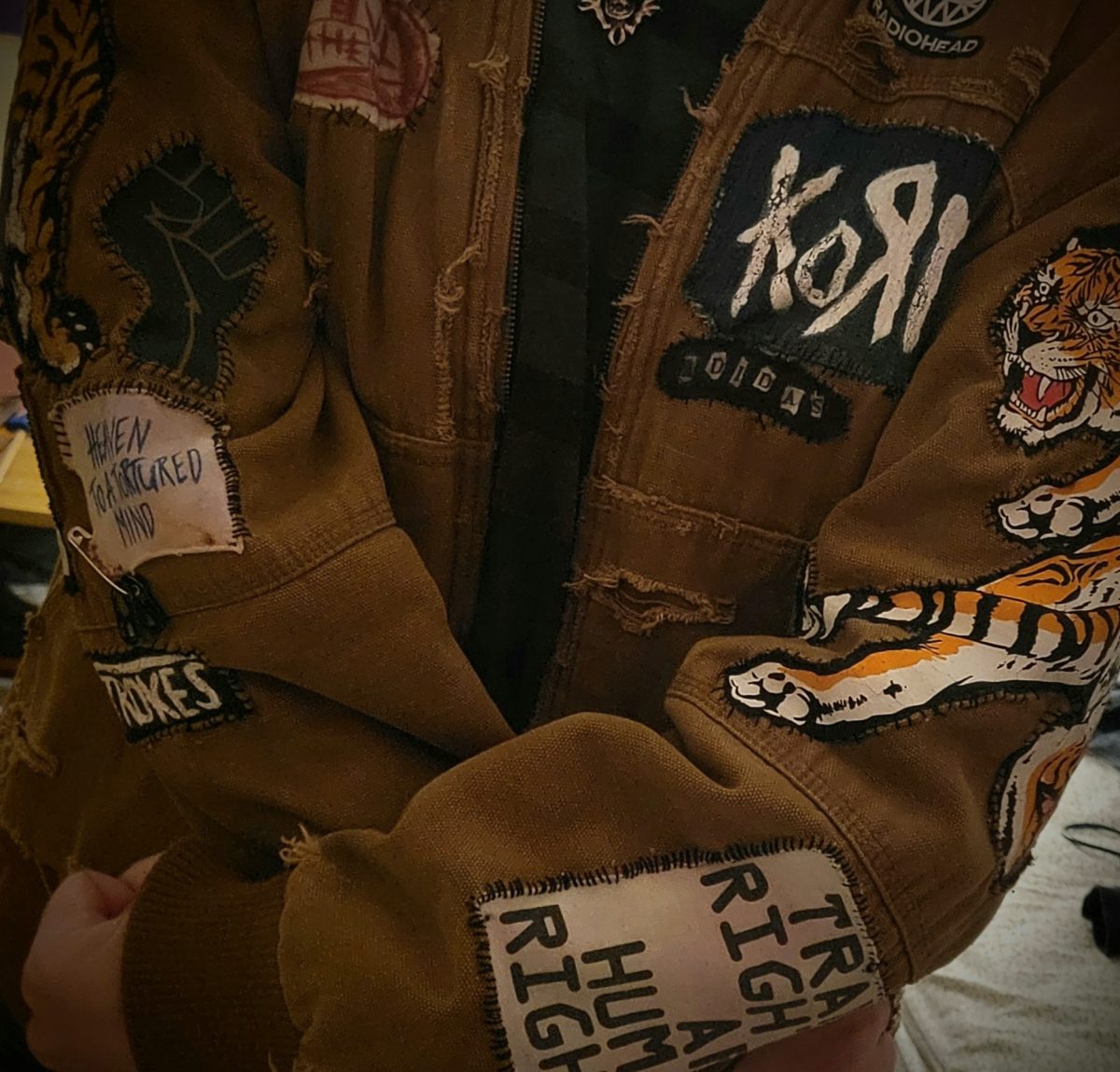The only true and good gene is the original Willy Wonka—aka Gene Wilder. But really, mall staple and clothing retailer American Eagle reintroduced the wordplay between “gene” and “jean” on July 23, 2025 in their newest ad campaign with “Euphoria” star Sydney Sweeney. The ads contain Sweeney posed in American Eagle denim as she talks to the viewer, which sounds innocent enough on the surface.
There are four different video advertisements Eagle has posted to the general public. The video that received the most backlash contains her talking about either jeans, as in blue denim, or genes, as in traits that are hereditary. In this advertisement, her last statement is “My jeans are blue” (or, perhaps, “My genes are blue”) with American Eagle’s campaign slogan superimposed over the screen reading “Sydney Sweeney has great jeans.” This campaign slogan has been plastered across all platforms—both print and digital. Needless to say, the public reception was highly critical.
In November of 1980, Calvin Klein released a similar advertisement with Brooke Shields where she also talks about hereditary genes. Both ads show their star buttoning up their jeans, talking about genes and showing the jeans’ functionality. But the campaign’s congruence ends here. Shields talks about the process of evolution, connecting the survival of the fittest to Calvin Klein’s jeans being the best. At no point does she bring up her own genes. In Sweeney’s campaign, however, many have interpreted the ad to be about inherited traits through offspring, ending that statement on eye color. Many viewers have read in between the lines, suggesting that Sweeney’s blue eyes—which are associated with whiteness—to be great genes. Whereas Calvin Klein connects their jeans to evolution, American Eagle connects theirs to eugenics.
“When I first saw the ad, I was surprised and weirded out,” Hanan Mohamoud (11) said. “The first time watching it, I didn’t get it, and I thought it was a way of her promoting jeans while also appealing to the male gaze, but I realized it had some deeper message about capitalism’s broader reliance on radicalized imagery to sell products like these. And what way to sell it than to have someone who ‘looks the part’?”
Eugenics is a far-right ideology derived from social Darwinism and further popularized during WWII in Nazi Germany. The Nazi Party’s ideal person was genetically depicted with blue eyes, blond hair and being white—the same traits possessed by Sweeney. This may sound extreme or even jumping to conclusions, but the rise of conservatism connected to right-wing ideologies since the start of Donald J. Trump’s presidential campaign in 2016 is certainly a factor in, yes, interpreting even a jeans commercial.
But wait, Sweeney’s ad has plausible deniability as she hasn’t publicly said anything endorsing Trump or right-wing ideology, so how can anyone be sure American Eagle and Sweeney are pushing a right-wing agenda? Okay, let’s introduce a timeline with examples: Trump gets elected again in 2024, major companies in America reform their DEI programs—some even removing it entirely as of the beginning of 2025, Tennessee successfully bans all HRT healthcare for trans youth in June 2025 and the Supreme Court rules that ICE racially profiling people for detainment is constitutional as of September 2025. These are just a few instances of what is currently happening in America, and the message is clear: Conservatism is making its place in the daily life of American citizens. Thus, it’s not a stretch to say that there is a clear influence of right-wing rhetoric in American Eagle’s advertisement. The cherry on top is that before Trump was elected, in June 2024, Sweeney registered to vote under the Republican Party.
“In the past 25 years, we’ve seen an explosion of media options available to us. We have the ability to completely surround [ourselves] in a bubble of custom media content that reinforces our likes and beliefs, and we can isolate ourselves from other experiences and realities,” social studies teacher Mr. Michael Prellwitz said. “This has created an extremely tribal and divided political environment where differing factions are absolutely convinced that they live in the true version [of] reality, and that the other groups are either completely misguided or even evil.”
Propaganda’s main appeal is emotion, which also happens to be the most effective. Prellwitz addresses that today’s media has shifted politics to be extremely polarized, which has created a hostile environment socially and politically. Regardless of political affiliation, people end up believing the most objectively distorted versions of reality that propaganda has influenced them to believe. Regardless of how you interpret American Eagle’s ad, it creates an emotional reaction, which may have been its intention in the first place.
Denim has a long history in American culture and was often used in political movements, such as the civil rights movement, which is mainly attributed to the African American community. Origins of denim in the U.S. reach back to the era of slavery. Slaves were dressed in blue denim not only for its durability, but its striking color, easily marking somebody as a slave. Blue denim henceforth became associated with slavery, but as time progressed, SNCC (Student Nonviolent Coordinating Committee) used denim as a tribute to slavery and a symbol to promote equality between gender and social status. The use of denim rebranded to freedom, equality and equity, spreading to other movements during the civil rights movement as well.
In this context, the use of Nazi eugenics to promote American Eagle’s blue jeans is a slap in the face to every African American and activist in the past, present and future. Flipping the narrative of African American history is often a tactic used by white supremacists to revise and edit history, ultimately erasing African Americans from it. This further pushes the level of insensitivity presented by American Eagle and Sydney Sweeney.
Despite backlash and criticism that the American Eagle ad campaign with Sweeney received, the company’s stock has risen significantly since its release. Unfortunately, as extremist right-wing conservatism continues to hold power in government, it will also continue to hold influence over the media and corporations. In this time, it is critical to hold these powers accountable and be critical of the media and products you consume.









